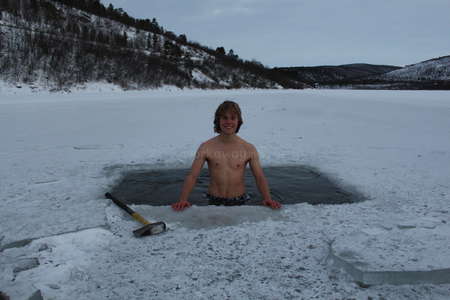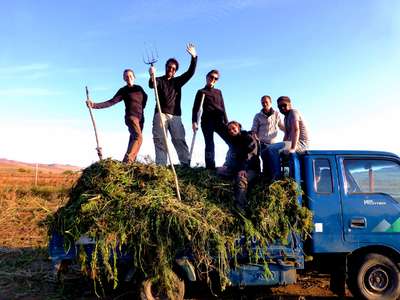A gap year can leave you smiling when searching for a job
Employers could view a gap year as something which needs a little explanation or justification even.
There are those who will be in favour of this method of broadening an individual’s horizons while there will be others who may need some convincing.
Probably these two camps correspond quite simply to those people who have experienced taking time out for themselves on the one hand, with those who haven’t on the other.
Regardless of these considerations, it is vital that you identify and outline the benefits of your experiences while away and invest a little time and effort in presenting them favourably.

See yourself through an employer’s eyes
To get the best value from your volunteering adventures and experiences you should try to find matches between the expertise that you acquired or developed whilst volunteering with the qualities requested by prospective employers. It’s important to read any job description carefully to pinpoint similarities with your newly developed skills.

An ideal candidate?
A useful tip is to try to put yourself in the position of your potential employer. From this perspective envisage the type of applicant who would be most suitable for the post. Tailor your CV and covering letter to incorporate the required specifications and emphasise the aspects of yourself which match your vision of the “ideal” candidate.
Bear in mind that most successful job applicants demonstrate the following qualities: professionalism, high energy, confidence and autonomy in the work place. The ability to tackle problems, make informed decisions along with a genuine curiosity or thirst for knowledge relating to the job is a winning combination.
However, be very careful because simply listing these attributes is not enough, in fact it could do more harm than good. The consensus amongst those who deal with sorting job applicants is that the most overused clichés in cvs are: Hard working, problem solving, competent, experienced, professional, self-motivated, successful, flexible …so you see the dilemma!
Don’t say it …show it!
What needs to be done to avoid falling into this trap is to demonstrate your qualities and abilities by giving concrete examples of your involvment and achievements.
You don’t need to state your skills as much as imply them.
Take this example:
Compare “I am an efficient and independent worker” (vague) to
“Costa Rica Eco Tourism Project: I devised a schedule for the team so that we could achieve our objectives within the alloted time frame. The cabins were constructed well before the visitors arrived.”
Rather than merely stating that you are “responsible”, explain specifically what your responsibilities were or what you were responsible for.
“ I was in charge of running Health Education Programmes to improve the quality of life for low income families in Kathmandu Nepal. This included providing childcare, clean water and raising awareness about dental hygiene.”

Of course it is a priority for any employer to make sure the person they hire is friendly, adaptable and will get on with the other members of staff or clients. To say that you have “inter-personal skills”, or are “a good team player” isn’t really enough. Give clear examples outlining any relevant experience which required co-ordinating and collaborating with others:
What was your interaction with others?
How did you collaborate?
What goals did you achieve?
If you encountered any difficulties or obstacles, how were you able to overcome these?
Future employers are impressed by those who show an awareness of their development and are able to monitor their own improvement. One of the most tricky and notorious questions is “What do you consider to be your greatest stength/weakness?”. Be prepared to answer in such a way that shows humility and conviction to keep on striving. An anecdote from your time away could provide you with the material you need.
Instead of using the word “help” or “assist”, use words which more accurately describe your role.
Were you “in charge of” anyone or anything?
Did you “organise” people or items?
Did your work invove “co-ordinating.”

Organising Tea Pickers
If so, you could justifiably define your position or title as “a supervisor” , a “co-ordinator” or a “facilitator.” These references carry more weight and meaning in the context of a CV. As before make sure you justify yourself by explaining the scope of your role.
As computing skills, numeracy and marketing are important for many employers, be sure to expand on any experience you have in those fields.
Did you help a host develop a website?
Were you responsible for handling or recording any of the financial transactions?
Did your role include promoting a product or a service or dealing with the public?
Perhaps you were given the opportunity to teach your native language, or offer guidance and support to target groups or individuals. Expand upon the extent of your reponsibilties and your ability to handle new and challenging situations.
What techniques did you use to overcome difficulties?
Most workplaces benefit from individuals who are resilient enough to “keep calm and carry on” and better still if they have the ability to take the initiative and look for solutions.
Travel skills can help with your job search
As well as your role as volunteer, how did the experience of travelling test or improve your skills?
Did you learn a new language?
Develop your photography or video production techniques?
Did you write any travel articles which were released for publication?
If you embarked on writing a travel blog you may have acquired knowledge and skills which could be considered as employment assets.

Did you expand your working knowledge of being a digital entrepreneur or learn about SEO (search engine optimisation)?
Did you become involved in the marketing of affiliate programs, coding or social media tools?
Were you required to deal with any traffic created for potential advertising and sponsorship?
Fortunately volunteering is a very good way of making the most of your gap year and having something positive to show for yourself at the end of it!
You need to be succinct but at the same time say enough about yourself to pique the curiousity of the person reading through your CV. In many cases there will be piles of applications to sort through. Ideally yours should stand out by suggesting that you are a unique and interesting individual who is worth getting to know in more depth.

If you have made the most of your time volunteeering, you won’t be short of adventures to elaborate upon when you are asked to do so which you almost certainly will be!
At the interview think “professional” : tailor your tales to suit your listener!
Good Luck!
About Jane
Jane is another regular blogger who has been involved with Workaway since its birth back at the start of the century!! She has travelled extensively and has both volunteered and hosted travellers over